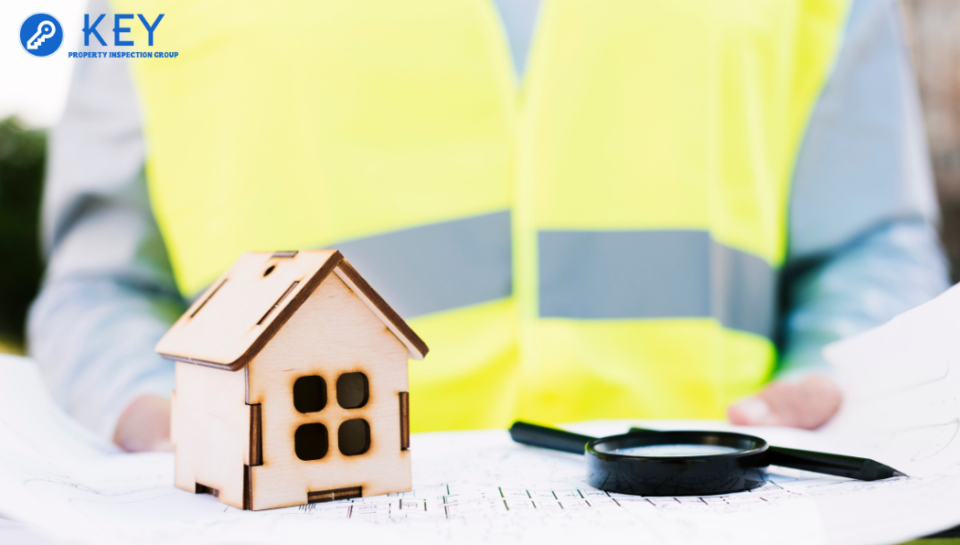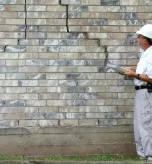Buying a home is one of the most significant investments a person can make. It’s not just a financial commitment but an emotional one as well. Whether you’re purchasing your first home, upgrading to a larger space, or downsizing for a simpler life, the desire to protect your investment and ensure your family’s safety is paramount. This is where home inspections come in. A comprehensive home inspection can reveal hidden issues, provide peace of mind, and protect both buyers and sellers from costly surprises. In this article, we will explore the vital role of home inspections in safeguarding your haven.

Understanding the Importance of Home Inspections
A home inspection is a thorough examination of a property’s condition, typically conducted by a professional home inspector. It covers everything from the foundation and structural integrity to the roof, plumbing, electrical systems, and more. The goal of a home inspection is to identify any potential issues or areas of concern that may require attention, repair, or replacement.
For buyers, a home inspection can uncover problems that may not be immediately visible during a standard walk-through. Sellers, too, can benefit from pre-inspections by identifying issues before listing their property, allowing them to make necessary repairs and present their home in the best possible light. Ultimately, home inspections serve as a safeguard for both parties, ensuring transparency and reducing the risk of post-sale disputes.
Protecting Your Investment
One of the primary reasons for conducting a home inspection is to protect your investment. A home can look perfect on the surface, but underlying problems could be lurking behind the walls or under the floors. Issues like faulty wiring, plumbing leaks, or structural damage may not be noticeable to the untrained eye but can lead to significant expenses down the road if left unchecked.
For example, discovering mold in the basement or a deteriorating roof after closing the deal can quickly turn your dream home into a financial burden. A home inspection can help prevent such scenarios by providing a detailed report on the property’s condition. If major issues are uncovered, buyers can negotiate repairs or request a price reduction to cover the cost of fixing the problems. In some cases, the inspection may reveal that walking away from the deal is the best option, potentially saving the buyer from a disastrous investment.
Health and Safety Considerations
A home should be a safe haven, but without a proper inspection, you may be unknowingly exposing yourself and your family to health and safety hazards. One critical aspect of a home inspection is identifying dangers such as asbestos, radon, carbon monoxide, or lead-based paint, particularly in older homes. These substances pose serious health risks if left unaddressed.
For instance, radon is a naturally occurring radioactive gas that can seep into homes through cracks in the foundation. Long-term exposure to high levels of radon is known to increase the risk of lung cancer. A radon test conducted during the inspection can detect whether mitigation measures are needed to lower radon levels in the home.
Additionally, home inspectors assess the functionality of smoke detectors, carbon monoxide detectors, and fire extinguishers. A malfunctioning smoke detector or a faulty heating system can lead to disastrous consequences. By identifying and addressing these potential hazards during the inspection, homeowners can take the necessary steps to ensure their home is safe for everyone living in it.
Negotiation Power and Peace of Mind
For homebuyers, the information gathered from a home inspection report provides valuable leverage in negotiations. If significant issues are identified, the buyer can request that the seller makes repairs before closing the deal or offer a credit toward repair costs. In some cases, the inspection results may even lead to a price reduction or the inclusion of a home warranty to cover potential future repairs.
On the flip side, sellers who conduct pre-listing inspections can also benefit. By identifying and fixing issues ahead of time, they can present their property in better condition, making it more attractive to potential buyers. A pre-inspection can prevent last-minute negotiations or delays that could derail the sale, providing sellers with more confidence during the transaction process.
For both buyers and sellers, a thorough inspection can provide peace of mind. Buyers can move forward with their purchase, knowing that the home is in good condition and free from major defects, while sellers can rest easy, knowing that their property has been vetted by professionals and is ready for a smooth sale.
Key Components of a Home Inspection
While the scope of a home inspection can vary based on the property and the inspector’s expertise, there are several key areas that are typically covered:
Roof and Exterior: The inspector will examine the condition of the roof, gutters, chimneys, and exterior walls for signs of damage, leaks, or wear and tear. They will also check for proper drainage around the foundation to prevent water damage.
Foundation and Structure: The foundation is the backbone of the home. Inspectors will look for cracks, settling, or any signs of structural instability that could indicate larger issues.
Plumbing Systems: The plumbing system will be evaluated for leaks, corrosion, and water pressure. Inspectors will check the condition of pipes, water heaters, and faucets to ensure they are functioning correctly.
Electrical Systems: A safe electrical system is critical. Inspectors will check the wiring, outlets, electrical panels, and fixtures to ensure that everything is up to code and functioning properly. Faulty wiring is one of the most common fire hazards found during inspections.
HVAC Systems: Heating, ventilation, and air conditioning (HVAC) systems will be assessed for efficiency and safety. Inspectors will check for proper ventilation and the condition of the furnace, air conditioner, and ductwork.
Interior Features: This includes inspecting windows, doors, floors, walls, and ceilings for any signs of damage or defects. The inspector will also test appliances, smoke detectors, and carbon monoxide detectors.
Attic and Insulation: Proper insulation is crucial for energy efficiency and preventing moisture buildup. The inspector will check the attic for signs of leaks, proper ventilation, and adequate insulation.
Pest Infestation: Inspectors will look for signs of pest infestations, such as termites or rodents, which can cause significant damage to the structure of the home.
Common Misconceptions About Home Inspections
Despite the clear benefits of a home inspection, there are several misconceptions that can lead buyers or sellers to skip this crucial step. One common misconception is that a newly built home doesn’t need an inspection. While new homes are often assumed to be in perfect condition, they can still have defects or unfinished work that may be overlooked. A home inspection ensures that everything is up to standard before the buyer moves in.
Another misconception is that a home inspection guarantees that no issues will arise in the future. While inspections can uncover existing problems, they cannot predict future wear and tear or unexpected breakdowns. A home inspection provides a snapshot of the home’s condition at the time of the inspection but should not be seen as a warranty.
Conclusion
A home inspection is a vital step in protecting your haven, whether you’re buying or selling a home. It offers a detailed look at the property’s condition, helping to identify potential problems that could turn into costly repairs. For buyers, it provides the confidence to move forward with one of life’s biggest investments, while sellers can benefit from a smoother, more transparent transaction process. Ultimately, home inspection riverside provide peace of mind, ensuring that your home remains a safe, secure, and sound investment for years to come.





